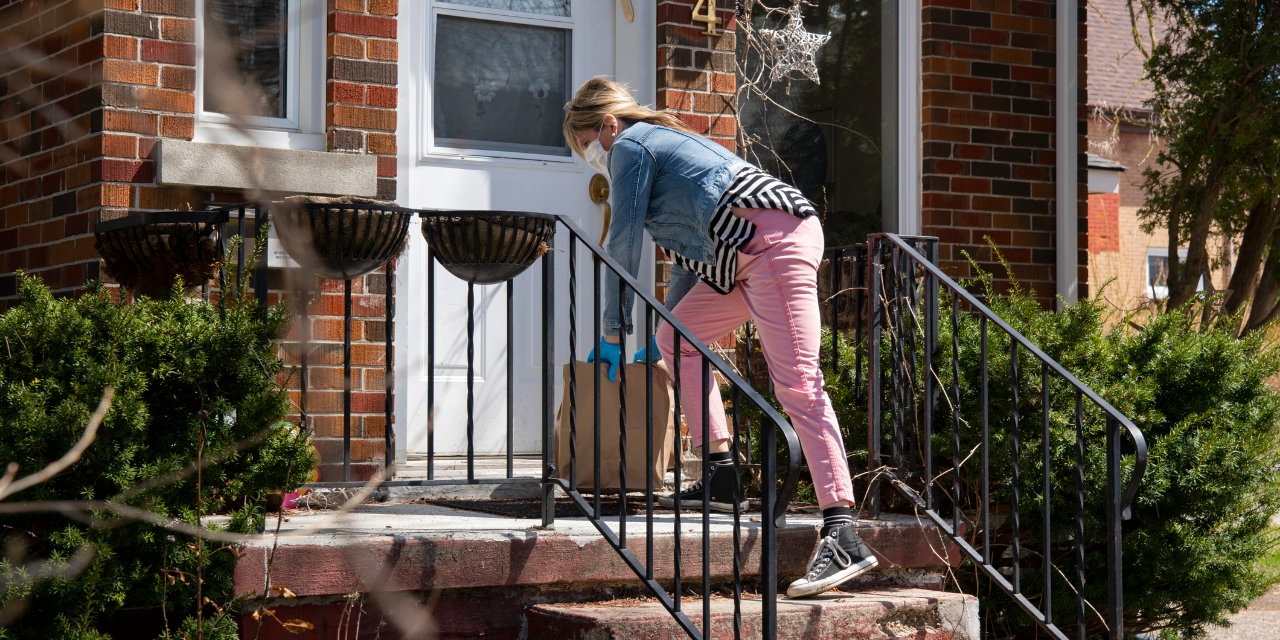Volunteering could turn the unexpected downtime during the COVID-19 pandemic into one of the most productive and meaningful experiences of your life, according to career and mental health experts.
"There has been an outpouring of support from students and others in the University of Alberta community wanting to do something," said Kevin Friese, assistant dean of student health and wellness with the University of Alberta.
How to volunteerHere are some ways to find volunteer opportunities during the COVID-19 pandemic: |
"For some, it might be boredom or coming to the end of term and looking for something to do anyway. For others, it's that ethical need to do something for their community to help support people."
There is no shortage of ways to help those vulnerable to the pandemic while observing public health directives, according to Friese and others tapped into the volunteer sector.
And it's one of the best ways to acquire skills and beef up your resume, especially if summer jobs aren't panning out as planned.
"Volunteering has a great number of career-related benefits worth considering when securing work is challenging," said Blessie Mathew, director of the U of A's Career Centre.
"While you are helping others and making a difference in your community, you also have the opportunity to explore and learn about the causes that are important to you, expand the areas in which you find purpose and meaning. You also make connections with like-minded people and professionals and learn new skills.
"All of these outcomes will ultimately have a positive impact on your career and work search."
In addition to connecting with home faculties and the U of A's community social work team, Mathew points to the provincewide Volunteer Connector as one of the best places to find volunteer opportunities. The matching platform has just been updated with a section devoted to COVID-19 postings.
"There are lots of roles volunteers can take on," said Karen Link, executive director of Volunteer Alberta. They include jobs that can be done remotely, such as helping non-profit organizations apply for grants and relief funding, supporting social media messaging, calling seniors to see how they're doing and helping those without Internet access apply for employment insurance online.
For seniors' support, the Seniors Coordinating Council is working with the government and senior organizations to assess needs and make sure they are being met, she said.
"Senior needs range from transportation to shopping to helping them navigate applications for government benefits."
"Then there are the micro-volunteering opportunities-short term, project driven, usually done on your own time. It could be quilting for people in need, cutting grass, reviewing documents or editing," said Link.
To help offset the economic impact the pandemic is having on students, the prime minister said last week the federal government will provide between $1,000 and $5,000 for students volunteering to help deal with the pandemic through a Canada Student Service Grant.
On campus, volunteer opportunities include checking in with students who are in distress or who might need help dealing with a dramatically changed academic environment.
"That might be anything from asking how their exams went, talking about a relationship that's gone bad or even just allowing someone to practise their English," said Friese.
One program called Unitea trains volunteers in active listening so they can reach out to students who just want to talk over tea or coffee, said Friese. Another enlists students to write and distribute positive text messages of encouragement, such as, "Hey, you got this," urging people to reach out for help if they need it.
In the greater Edmonton community, one of the more inspiring platforms helping to connect neighbours during COVID-19 is Next Door, said Link. The platform matches those who need help with those you can provide it.
Out-of-work tradespeople, for example, offer to help neighbours struggling with plumbing, electrical or carpentry projects. They volunteer to troubleshoot over Facetime, at the same time promoting their businesses for more prosperous times.
"It's thrilling, frankly; I've seen unprecedented collaboration during this time, and egos are checked at the door," said Link. "Look what we can accomplish, when it doesn't matter who gets the credit."
Visitors to Volunteer Connector will also find a new posting by the federal government for the National COVID-19 Volunteer Recruitment Campaign, now looking for help with case tracking and contact tracing, health system surge capacity and case data collection and reporting.
Some students are taking it upon themselves to reach out in a time of need, like those in the U of A's Faculty of Medicine & Dentistry offering emergency child care to physicians and front-line health workers.
"Volunteering has become a core component of many students' overall academic path," said Friese. "There are programs and employers that want to see what volunteering you've done, to round out the interpersonal communication, the social dimension that's involved in many community organizations."
It also gives you a sense of control over your life, he added, especially when external circumstances seem so uncertain. It doesn't hurt that it also supplements academic training in ways that may prove valuable for the rest of your life.
"Volunteering extends your lifespan," said Link. "You contribute to something greater than yourself, which has massive mental health benefits, and it satisfies a basic need in human beings to actually contribute to the common good. It's really invigorating."
